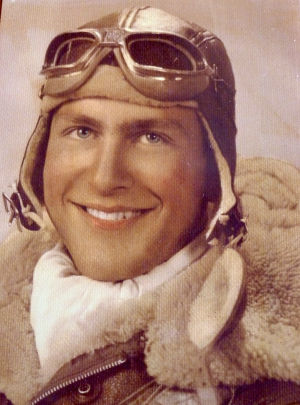Kilmer was from Minnesota and he enlisted in the war in 1942, when he was 21 years old. After finishing his military training, he went to Seething, England in 1944, where he served with the 448th Bomb Crew, 712 Squadron.
He took part in the D-Day landings on June 6, 1944 but his B-24 Liberator bomber was shot down on June 29, in Moosburg, Germany and crashed in Amsterdam. All ten men aboard survived but they were all captured and became prisoners of war. The Germans separated Kilmer from the rest of the crew, which he never got to see again, although the all returned home. He spent his time in prison without knowing what time it was, without food, without water and without sleep.
Kilmer confessed that when he was shot down he felt fine but he was very worried about his family who didn’t know he was captured. The camp he was held in was a special camp, just for officers, some kind of a prize for the Germans. Among the prisoners were mostly American and British officers. They tried to drive the young officer insane by taking him out of the cell just for interrogations; when he wouldn’t answer the questions they would take him back to his cell and then out again. They would also put people outside the cell’s windows and make them yell and shoot, to make him believe he was going to be the next one.
One of the interrogators told Kilmer he was raised in Chicago and that he was being very stubborn. “You won’t tell me who you are but we’ll tell you who you are,” he said and he took out a book of the 448th Bomb group. He opened it and pointed to Kilmer’s picture. In the book were also written the targets they flew, and detailed bomb reports, documents which Kilmer believed were highly classified.
The Germans didn’t know what to believe about him, they didn’t know if he was an American officer or a German spy, the Your West Valley.com reports.
In January 1945, the allied forces were approaching from all sides; the Russians from the East, Americans from the West and more English and Americans were coming from Italy. The Germans wanted to keep their prisoners, so they made them walk, with no winter clothes, from Stalag Luft III to Munich, Germany. On April 29, during a church service, an American tank went through the barbed wire and Kilmer jumped on top of the tank. The man inside looked at Kilmer and asked him what he wanted. “We want food,” said Kilmer. He reached inside his tank and grabbed his food. The day of his liberation was finally there.
He was awarded a Purple Heart, POW Medal, American Theater Medal and many others.
